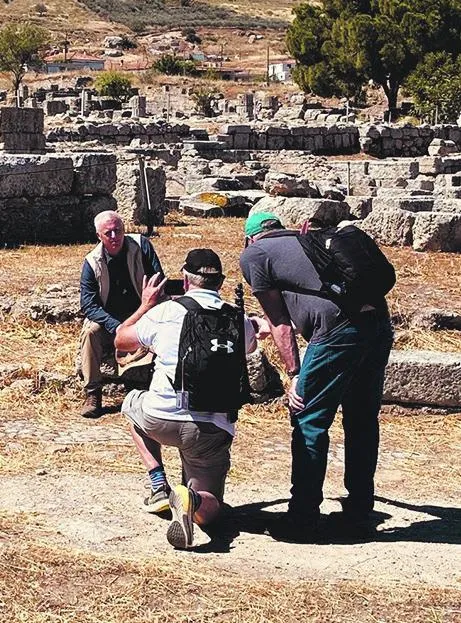Archaeological excavations at Corinth have revealed a wealth of remains that help us understand the New Testament and also demonstrate that the books were written during the middle of the first century AD. We have just returned from filming there for a new series on the Bible – it really brings the Bible to life.
Corinth was an important travel hub for the Roman Empire, sitting on a narrow neck of the Greek mainland. Nowadays a canal joins the Ionian Sea to the Aegean Sea and saves boats a long journey around the coastline. In Paul’s day, boats were dragged overland along a portage road, remains of which can still be seen.
Heavy investment in Corinth led to significant building work during the first century. The theatre, public buildings, courthouse, temples and dock all benefitted from this Roman investment. When archaeologists excavated the site in the 1920s they found a significant inscription on a pavement near to the theatre.








